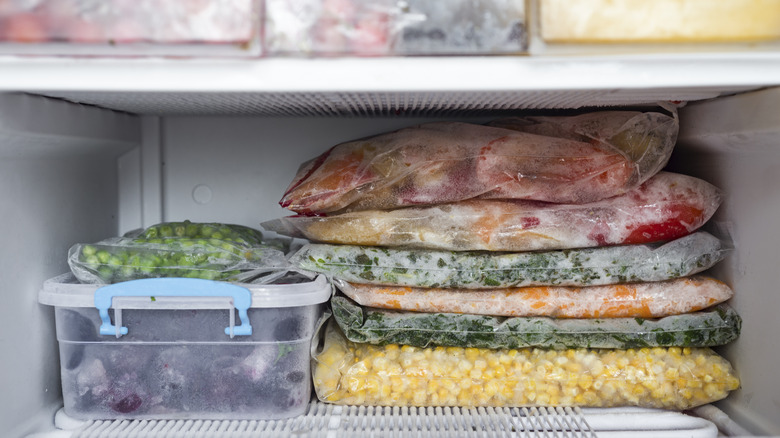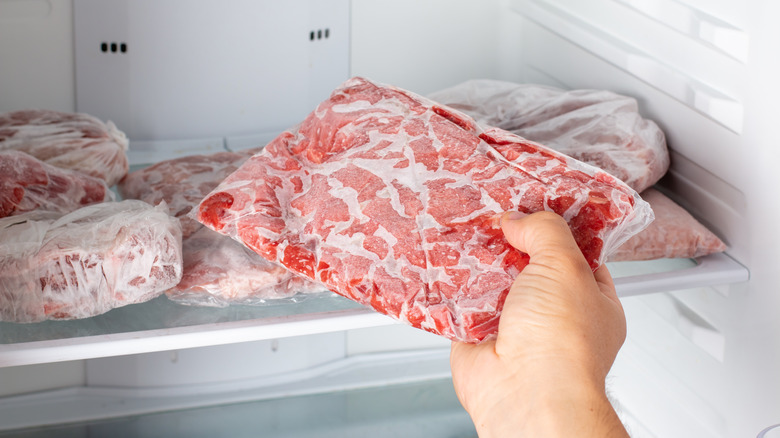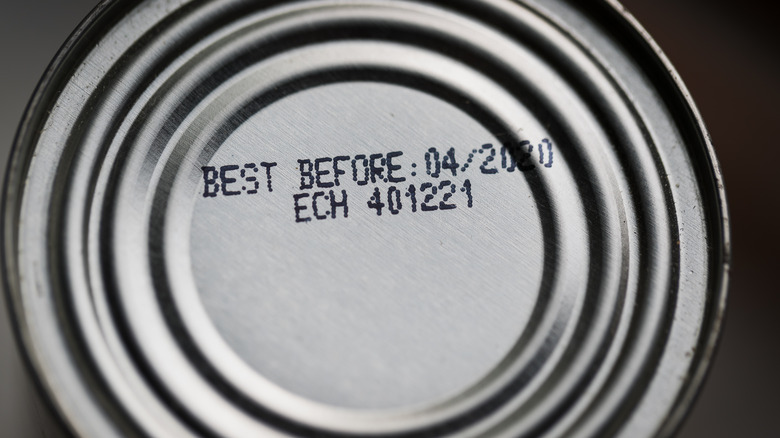Will Freezing Nearly-Expired Food Actually Extend Its Life?
Chances are your pantry and refrigerator are filled with fresh and canned vegetables and meats that may be reaching their expiration dates. Some people may toss out their food once it expires, but others might try to stretch its shelf life for as long as possible. The freezer may be the first place to come to mind to save nearly-expired food, and that's for a good reason.
Storing food in the freezer at zero degrees Fahrenheit prevents or slows down the growth of bacteria and mold, according to Heathline. It is imperative, though, that the freezer stays at zero degrees or lower as chances of spoilage increase if the freezer is warmer than zero. Once the food is taken out of the freezer, bacteria growth will resume. The freezer may generally extend the shelf life of food, but it won't keep food edible forever; storage length varies based on the type of food.
Meat can last up to a year in the freezer
According to the U.S. Department of Agriculture, food is generally safe to eat after its expiration date. However, freezing meat can extend its shelf life up to several months. Open canned meat, like ham, can be kept in the freezer for up to two months. Processed meat, such as deli slices, sausages, and hot dogs, is also good for about two months in the freezer. Uncooked fresh meat, like beef and pork, are perishable after a few days, but storing them in the freezer extends their life from about three months to a year, depending on the type of cut.
Whole poultry lasts about two days but can be kept in the freezer for about a year, while poultry pieces and ground poultry last about nine and three months, respectively. Fish generally should be stored in the freezer for three to 12 months. If your eggs are about to expire, the USDA does not recommend freezing them. Fruits and vegetables, on the other hand, can be placed in the freezer for up to a year.
The difference between expiration date labels
While perishable food can stay edible longer in the freezer, various expiration date labels make it difficult to determine if a food product has expired. According to the USDA, there is no universally accepted food dating guideline, and manufacturers are responsible for creating such labels, which results in different labeling criteria.
Four main labels are used, all of which only estimate a food's quality. A "Best if Used By/Before" date suggests "when a product will be of best flavor or quality," according to the USDA. A "Sell-By" date informs stores how long to sell the product. A "Use-By" date sounds similar to the "Best if Used By" date but is the last date recommended to use the product. A "Freeze-By" date advises when a product should be frozen to maintain quality. Even if a food product's shelf life is prolonged in the freezer, the USDA recommends that food that shows any sign of spoilage in smell, taste, or texture should be thrown away.


